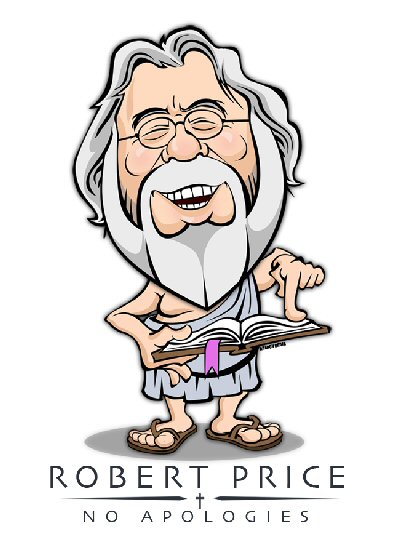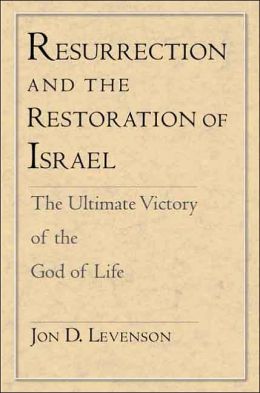This is a blog to a rather long review of a book titled, "The Resurrection of the Son of God", by NT Wright. Wright is an accomplished scholar who is often on TV and is referenced most by WL Craig, during his debates. This book in question is an 800 page tome concerning pertinent facts about the resurrection from ancient Jewish sources and early Christian writings to confirm that Jesus' resurrection could be nothing other then a literal-physical resurrection.
 NT Wright has no problems mentioning that he writes this book in response to modern higher criticism of the NT which has revealed a possible alternative to the resurrection narrative that would have been the original beliefs of the Jews who would later be called Christians. Wright considers this modern "misinterpretation" to involve six tenants. 1) Jewish eschatology was "fuzzy" and diverse. 2) Paul did not proclaim a bodily (literal-physical) resurrection. 3) The earliest Christians proclaimed an exaltation and spiritual resurrection of Jesus Christ. 4) The Gospels are, thus, a re-interpretation and do not represent actual history. 5) The appearances and sightings of a resurrected Christ are best understood in the context of Paul's conversion experience. 6) Jesus' body is still in the ground, so to speak. Whatever happened to it, it was not "raised" or given new life.
NT Wright has no problems mentioning that he writes this book in response to modern higher criticism of the NT which has revealed a possible alternative to the resurrection narrative that would have been the original beliefs of the Jews who would later be called Christians. Wright considers this modern "misinterpretation" to involve six tenants. 1) Jewish eschatology was "fuzzy" and diverse. 2) Paul did not proclaim a bodily (literal-physical) resurrection. 3) The earliest Christians proclaimed an exaltation and spiritual resurrection of Jesus Christ. 4) The Gospels are, thus, a re-interpretation and do not represent actual history. 5) The appearances and sightings of a resurrected Christ are best understood in the context of Paul's conversion experience. 6) Jesus' body is still in the ground, so to speak. Whatever happened to it, it was not "raised" or given new life.
I wish that I have read this book, but alas, this is simply a comment on the comments on the book of NT Wright, which is apparently on the comments of modern Biblical criticism. I have however, read a few pages and do have some critiques which I can outline without any authoritative standing. I attempt such a critique, because this book has become a hallmark for many Evangelicals, and I feel a responsibility to take it seriously.
NT Wright's position seems to be that first century Jews could have no other opinion about the resurrection other then it being a literal-physical event. I use the term literal-physical because I believe it denotes the correct meaning implied. Bodily resurrection is still vague, because after all even angels are thought of as having "bodies". The word "body" does not make explicit a corporeality which I think is unavoidable by the term literal-physical resurrection. Upon this thesis I must accuse NT Wright of limiting himself to a very select subset of ancient documents. It is true that the Rabbinic Tradition and some inter-testimental literature confirm a belief in a literal-physical resurrection, but there was most certainly a diversity of belief in first century Judaism. Enoch and the Apocalypse of Zepheniah are perhaps the two most prominent advocates for a spiritual resurrection.
Over all, this leads me to greater skepticism of most Christian scholarship. The size of the book alone gives me pause to consider whether or not this is a genuine work of intellectual honesty or rather a brash attempt to over-complicate an argument through some form of intellectual bullying. I truly believe NT Wright is an honest person, but I can read a two hundred page book on the resurrection will give me a very modern critical alternative that is much easier to understand and explain, and still retain all the essential creeds then read an 800 page response to such ideas which for the most part seem to ignore important pieces of information. At the moment it seems the modern version has the high ground simply on the basis that it does not have to ignore information that may disagree with its argument. This is something that I find all-too-often in "Christian scholarship" and it frustrates me.
Other then that, here are the links to the reviews of NT Wright that I think need to be considered.

The first is by Robert Price, who is a prominent internet atheist and is respected by many "novice" intellectuals. Though Price's critique is colored by a very vulgar form of mockery. His points are dead on. I must admit with a bit of guilt that I did find some of Price's descriptions to be humorous. At one point he calls Wright a "used-gospel salesman". I did chuckle at that, but to be honest what I find sad is that many atheists/secularists feel the need to respond to religion in such a manner. I understand that many of them have received like treatment from our supposed "brothers" in the Lord, but being the intellectual "superiors" that they imagine themselves to be, you'd think they could develop the empathy and kindness that they think we lack so much of. Price is harsh and unforgiving, but in the end his critiques are worth understanding. It is a rather long diatribe though as so for the concise reader this is a brief summation of his 3 critiques.
1. "a complete unwillingness to engage a number of specific questions or bodies of evidence that threaten to shatter Wright's over-optimistically orthodox assessment of the evidence." Like I said, that is much Wright "leaves out" of this book simply because it contradicts his argument.
2. "He takes refuge in either side of an ambiguity when it suits him, hopping back and forth from one foot to the other, and hoping the reader will not notice." Since I have not read the book myself, it seems as though, NT Wright wants to rely on things like "symbolic" language when it suits his agenda to explain things like the spiritual resurrection taught by Paul in 1 Cor. 15, but to deny any other use of such symbolic instrumentality.
3. "He loathes Enlightenment modernity because it will not let him believe in miracles." Many Evangelicals find it a comfort to see such an "unbiased" view, but the reality is that this contains a bias in itself as well. The truth is that the Enlightenment does not prevent us from believing in miracles, but it does set some stringent perimeters on a hermenuetic which would interpret the miraculous. The thrust of the Enlightenment was toward clarity and unbiased judgments in our search for truth, rather then having an agenda against miracles, the opposite is actually true. The Enlightenment was against such agendas all-together. In this NT Wright already states his bias and confirms for us the reality that he is not concerned with clarity or impartiality.
The next two reviews are of less importance, but do highlight the faults already mentioned. This reviewer felt that Wright intentionally left out some important information and did not consider other possibilities. And this review points out that Wright goes to such great lengths to promote something to which there is a much easier answer to.
 I know many will want positive reviews to seem "balanced". To be honest, I feel the positive reviews can't be whole-heartedly trusted at this point. I don't believe Wright to be a bad guy. This is definitely a work of importance, and NT Wright is able to accurately understand the problem that faces modern theology. He also identifies the right shifts that have taken place. The resurrection is no longer a unilateral belief system no matter how hard NT Wright tries to turn back the clock. Even if he is right, we have to contend with a belief that a spiritual resurrection is justification for Christian belief.
I know many will want positive reviews to seem "balanced". To be honest, I feel the positive reviews can't be whole-heartedly trusted at this point. I don't believe Wright to be a bad guy. This is definitely a work of importance, and NT Wright is able to accurately understand the problem that faces modern theology. He also identifies the right shifts that have taken place. The resurrection is no longer a unilateral belief system no matter how hard NT Wright tries to turn back the clock. Even if he is right, we have to contend with a belief that a spiritual resurrection is justification for Christian belief.  So in lieu of not providing a positive response to NT Wright, I will provide a book which seems to me to be a fair and genuine interpretation of the resurrection. Now, I have not read this book either, and so in both cases I am shooting blind, but relying on what information is provided about such books this is a book that I think deserves attention above and beyond NT Wright. It is called, "Resurrection and Restoration of Israel: The Ultimate Victory of the God of Life" by Jon Levenson. Here also, is a subsequent review which I think deals with the gist of the book. This book is a humble 300 pages, but it is also very scholarly. As far as I can tell Levenson advocates a "bodily" resurrection, which is something I do not dispute, but the specific details I think are debatable and up for discussion. I find this book to be more favorable to such a discussion then NT Wrights.
So in lieu of not providing a positive response to NT Wright, I will provide a book which seems to me to be a fair and genuine interpretation of the resurrection. Now, I have not read this book either, and so in both cases I am shooting blind, but relying on what information is provided about such books this is a book that I think deserves attention above and beyond NT Wright. It is called, "Resurrection and Restoration of Israel: The Ultimate Victory of the God of Life" by Jon Levenson. Here also, is a subsequent review which I think deals with the gist of the book. This book is a humble 300 pages, but it is also very scholarly. As far as I can tell Levenson advocates a "bodily" resurrection, which is something I do not dispute, but the specific details I think are debatable and up for discussion. I find this book to be more favorable to such a discussion then NT Wrights.




